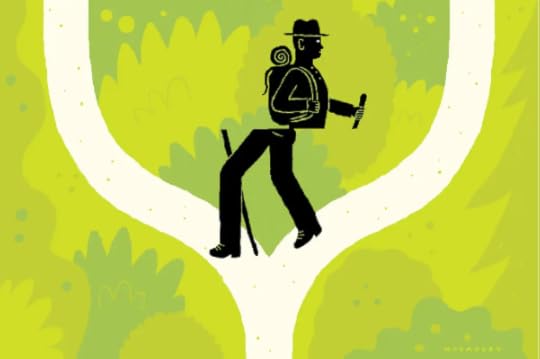The road we did not take …

When in December 1923 Anna Gallo left her father’s house set in via De Liguori at Sarno, and got on a steamship towards the “new world”, she did not know that it would take 17 days to disembark in New York, Ellis Island.
Her brother Antonio, who would later become my Father, should also have left with her. He was only eighteen but decided not to go. It is not possible to know the reasons. All the protagonists of this story that we had the opportunity to tell each other, after so long have disappeared.
The occasion was a spa holiday on the always enchanting green island of Ischia. With Christine, last daughter of Anna, the legendary “American Aunt Nannina”, my first cousin and her daughter Maureen, we went in search of a time that we thought was lost.
We have partly rediscovered it and also reconstructed it as much as possible, crossing the events across the ocean that separate us. My Father’s refusal not to leave with his sister Anna reminded me of the well-known and much discussed poem by the American poet Robert Frost.
I decided to use the theme for this post. Obviously, it wasn’t me who made that decision, it was him, Antonio, my Father. But what did the poet Frost mean in his well-known and much discussed poem?
Two roads diverged in a yellow wood,/And sorry I could not travel both/And be one traveler, long I stood/And looked down one as far as I could/To where it bent in the undergrowth;/Then took the other, as just as fair/And having perhaps the better claim,/Because it was grassy and wanted wear;/Though as for that, the passing there/Had worn them really about the same,/And both that morning equally lay/In leaves no step had trodden black/Oh, I kept the first for another day!/Yet knowing how way leads on to way,/I doubted if I should ever come back./I shall be telling this with a sigh/Somewhere ages and ages hence:/two roads diverged in a wood, and I — /I took the one less traveled by,/And that has made all the difference.
The poem is a metaphor for life and the choices we face. The two roads that divide in the woods represent the crossroads that we find ourselves facing throughout our existence. The poet invites us to follow the road less traveled, to move away from easy conformism, and to make courageous and individual decisions.
The two roads are identical, but the narrator chooses the one less traveled because it “perhaps had the better right” to be chosen, being grassier and less worn.
In the last verse, the narrator imagines having to make his choice in the future, stating that “this made all the difference", suggesting that the decision made had a decisive impact on his destiny.
The poem expresses a certain irony about choice and regret, underscoring how one can never know with certainty which is the best path to take.
The many roads not taken represent the possible lives we could have had, but did not realize due to the choices we made or by chance. Furthermore, the poet wants to introduce the concept of personal destiny in different ways.
Choice as determination of destiny. What we do in life determines our destiny. The narrator chooses the road less traveled, and this choice has a significant impact on his life, as evidenced by the final sentence, “and that made all the difference.”
But there is also uncertainty and regret. The poem does not provide a definitive assessment of the choice, but leaves room for both one and the other. Personal destiny is influenced by the choices we make, but we cannot always know if the right ones have been made.
There is the metaphor of the road that looms over everything, the metaphor of life, it represents the crossroads that we have to face. The choice to take one path rather than another represents the choice we must make, which determines our destiny.
Awareness of the past invites us to reflect on the choices we have made. The narrator imagines having to talk about his choice in the future, suggesting that awareness of the past is part of personal destiny.
Choice as a union of circumstances and decisions suggests that personal destiny is the result of a combination of circumstances. The narrator cannot know what would have happened if he had taken the other path, but he knows that his choice determined his fate.
We talked about this and more with my cousin Christine and her daughter Maureen. Reconstructing the days of those choices led us to reflect on the consequences for which we are not responsible.
A life exercise that leads us to think and choose different paths that we could have taken and that we didn’t take. We know it well. Reality cannot be constructed with “ifs” and “buts”.
Yet, we have the possibility of thinking that this same reality is the only possible one we have left to follow, a path that we did not take…
[image error]MEDIUM
- Antonio Gallo's profile
- 52 followers



